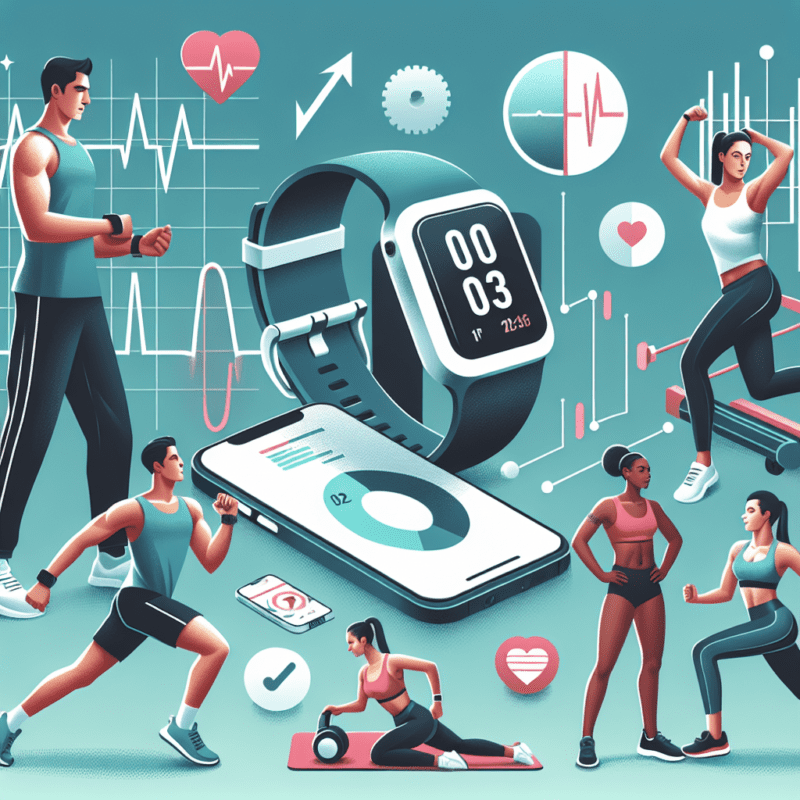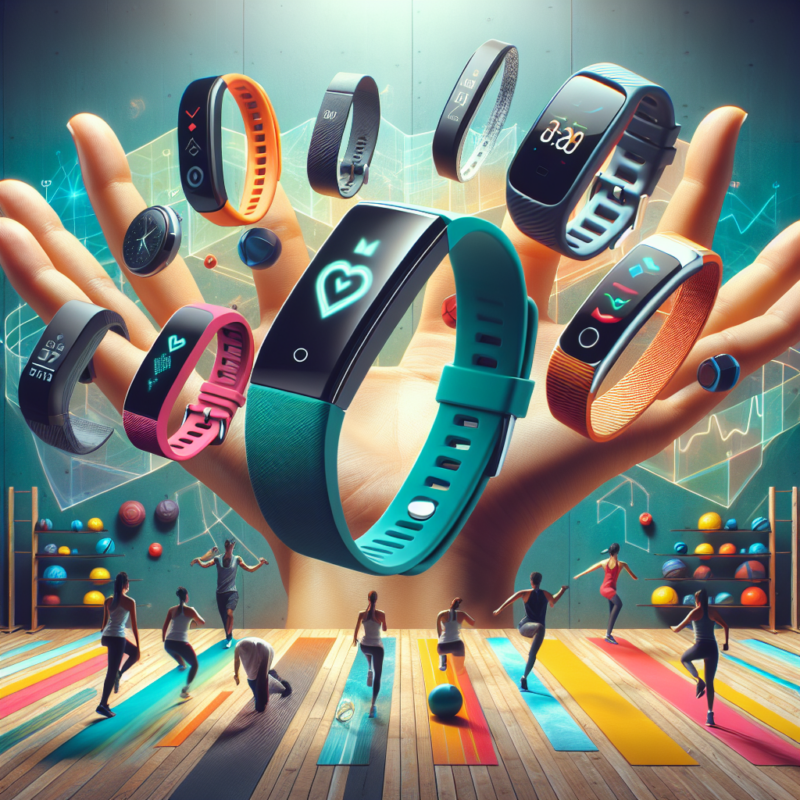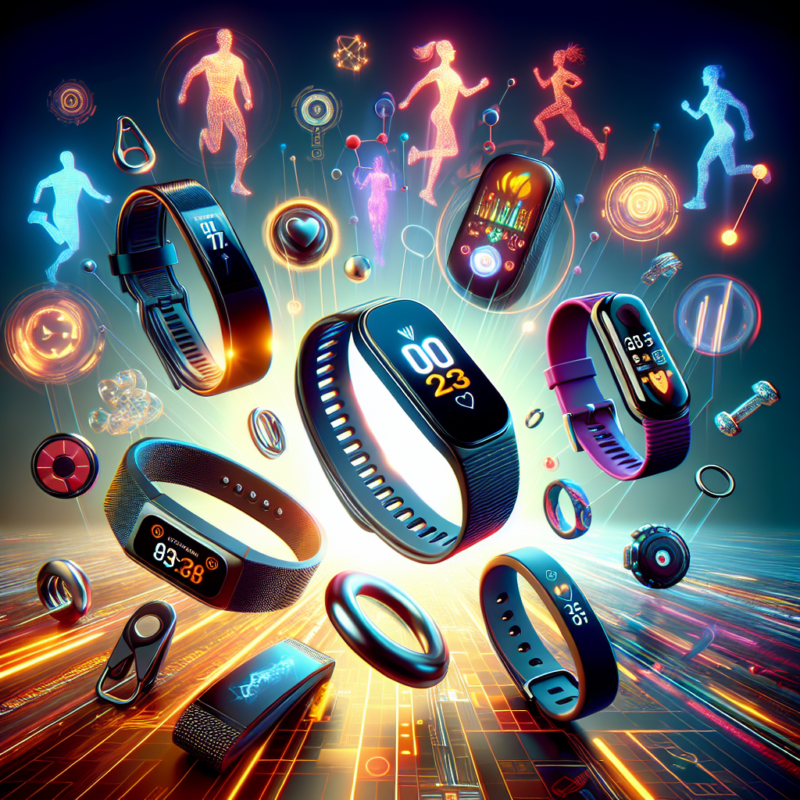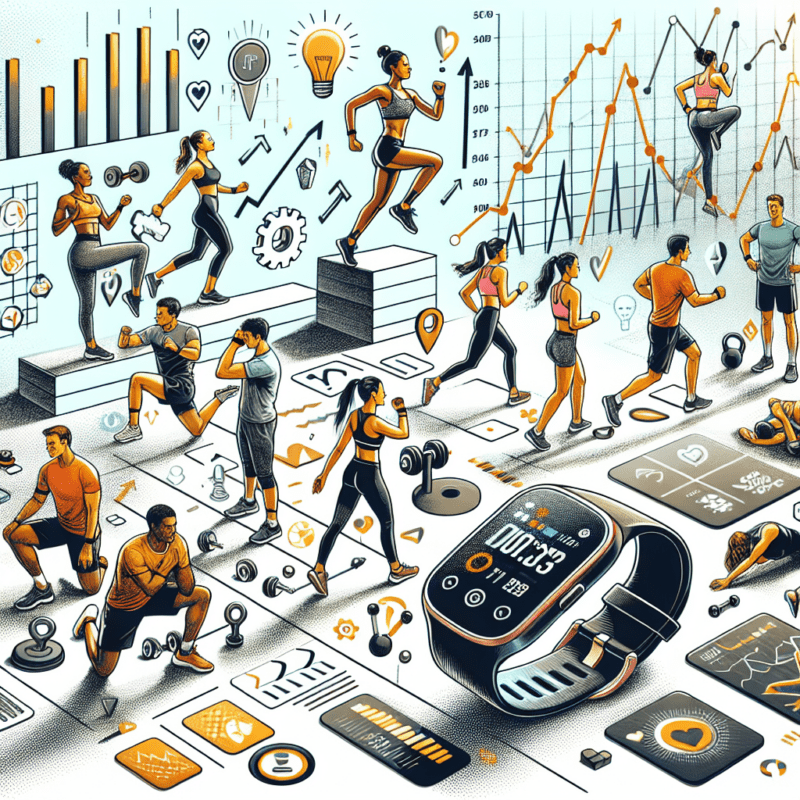A Comprehensive Review of the Most Popular Fitness Trackers
In today’s fast-paced world, tracking physical activity and health metrics has become essential for many individuals seeking to improve their fitness levels. Fitness trackers provide an efficient way to measure steps, heart rates, sleep patterns, and other metrics vital for a healthy lifestyle. This comprehensive review of the most popular fitness trackers will explore their features, benefits, and usability, offering valuable insights to help you choose the right device to match your fitness journey.
The Importance of Fitness Trackers in Your Health Journey
Fitness trackers serve as personal health assistants, offering real-time data that can significantly influence your fitness regime. They are designed to promote awareness about physical activity, encouraging users to stay motivated by setting and achieving daily goals. By monitoring metrics like steps taken, calories burned, and exercise intensity, fitness trackers help individuals establish a routine and hold themselves accountable for their health objectives. This data can be transformative, as many users experience enhanced motivation and encouragement when they can visualize their progress.
Moreover, the integration of advanced technology into fitness trackers has revolutionized the way we approach physical health. With features such as GPS tracking, heart rate monitoring, and even sleep analysis, these devices provide a comprehensive view of your well-being. Users can gain insights not only into their daily activity levels but also into their recovery processes and overall health status. In an era where personal health is paramount, fitness trackers have emerged as indispensable gadgets for fitness enthusiasts and casual exercisers alike.
Key Features to Look for in a Fitness Tracker
When selecting a fitness tracker, features play a critical role in determining the device’s overall effectiveness and user satisfaction. One of the most crucial aspects to consider is the accuracy of the activity tracking capabilities. Look for a device that provides reliable data on steps taken, distance traveled, and calories burned. Additionally, consider heart rate monitoring and how it factors into your fitness goals, as this can help you understand your exertion levels during various activities. Some models also offer built-in GPS, making them perfect for outdoor activities such as running or cycling.
Apart from activity tracking, the user interface and connectivity options should also influence your decision. Most fitness trackers now come equipped with smartphone app capabilities, allowing for a seamless connection between your device and your phone. This connectivity is essential for receiving notifications, syncing data with health apps, and accessing additional features such as workout plans and nutrition guides. The battery life of the tracker is another important consideration; you’ll want a device that can last several days on a single charge to avoid frequent recharging interruptions.
Top Fitness Trackers: In-Depth Reviews
Fitbit Charge 5
The Fitbit Charge 5 stands out in the crowded fitness tracker market for its comprehensive health monitoring features. It offers live heart rate tracking, blood oxygen level monitoring, and even stress management insights through its built-in EDA sensor. This tracker is suitable not just for fitness enthusiasts but also for users focused on holistic health. One of its unique features is the Daily Readiness Score, which informs you if your body is ready for a workout or if you need recovery time.
Additionally, the Fitbit app enhances your fitness experience by providing data analysis and personalized insights, allowing users to make informed decisions about their health and fitness goals. The device’s sleek design and vibrant display make it an elegant accessory that continues to attract users looking for both functionality and style.
Apple Watch Series 8
The Apple Watch Series 8 has redefined smartwatches and fitness trackers alike with its iconic design and functionality. Beyond typical fitness tracking metrics, it incorporates advanced health features like ECG monitoring and menstrual cycle tracking, appealing to a broader audience. Its integration with iOS allows users to enjoy seamless app compatibility, including music listening and app notifications while exercising.
The standout feature of the Apple Watch Series 8 is its activity rings system, which provides visual motivation for users to complete their daily fitness goals. With an array of customizable workout options, customizable watch faces, and extensive third-party app compatibility, this smartwatch transcends traditional fitness tracking, making it an excellent choice for individuals who desire both fitness functionality and smartwatch capabilities.
Garmin Venu 2
Garmin’s Venu 2 is ideal for serious fitness enthusiasts and athletes looking for a more sophisticated fitness tracker. Boasting advanced metrics such as VO2 max estimation, fitness age estimation, and even Body Battery energy monitoring, this device provides a level of insight that benefits committed athletes. The bright AMOLED display and robust GPS capabilities enhance outdoor activities, making it perfect for runners and hikers.
In addition to its fitness features, the Venu 2 excels in providing a holistic view of overall health through its sleep tracking and wellness features. Users can track various activities across multiple sports, making it one of the most versatile fitness trackers on the market. With an impressive battery life and extensive data analysis capabilities, the Garmin Venu 2 is positioned as a premium option for those seeking serious health insights.
Choosing the Right Fitness Tracker for Your Goals
Selecting the perfect fitness tracker can be overwhelming, especially with the vast options available in the market. When considering a device, it’s essential to establish your fitness goals first. Are you looking to lose weight, enhance your athletic performance, or merely maintain an active lifestyle? Different trackers cater to different needs; for instance, if you are focused on advanced metrics for training, a device like the Garmin Venu 2 may be the best fit.
Another critical factor is compatibility with other devices and services. If you already use particular apps for diet tracking or workout planning, make sure the fitness tracker you choose can sync with those applications. The user experience should not be complicated; look for an interface that is easy to navigate and provides insights in a straightforward manner.
Lastly, set a budget. Fitness trackers range widely in price, and while premium devices offer extensive features, there are many functional options available at lower price points without sacrificing essential tracking capabilities. Prioritize features based on your individual needs and find a device that offers the best value for your investment.
Future Trends in Fitness Trackers
As technology continues to advance, so do the features and capabilities of fitness trackers. The rise of biometric sensors has opened a pathway for even more precise health monitoring. Future devices are expected to include more sophisticated sensors for health metrics like glucose levels or hydration state. These advancements can significantly enhance the overall user experience and push the boundaries of what fitness trackers can do.
Moreover, the integration of artificial intelligence and machine learning is set to improve personalization dramatically. Fitness trackers may soon offer tailored workout plans and recovery suggestions based on user behavior and performance analytics, making them more like personal trainers on your wrist. The future of fitness trackers is bright, with innovations that promise to enhance personal fitness journeys and overall health management.
Another exciting trend includes the growing emphasis on social fitness. Many fitness trackers now incorporate community features that allow users to challenge friends, celebrate achievements, and share milestones. This social aspect can provide an additional layer of motivation, turning fitness into a more interactive and community-driven experience.
Conclusion
Choosing the right fitness tracker can profoundly impact your fitness journey by providing you with valuable insights that can shape your health decisions. From the Fitbit Charge 5’s holistic health monitoring to the multifunctionality of the Apple Watch Series 8 and the athlete-centric features of the Garmin Venu 2, there is a fitness tracker available for every individual’s needs. As technology evolves, we can expect fitness trackers to become even more sophisticated tools, offering unprecedented assistance in achieving our health and fitness goals.
Embrace the revolution in health technology and invest in a fitness tracker that suits your lifestyle, enabling you to take the reins of your health journey fully.
FAQs
What features are most important when choosing a fitness tracker?
When choosing a fitness tracker, consider features like heart rate monitoring, step counting, GPS tracking, sleep analysis, battery life, and compatibility with your smartphone or health apps.
Are fitness trackers waterproof?
Most fitness trackers today offer some level of water resistance, but it’s essential to check the specifications. Many are suitable for swimming, while others may only tolerate splashes.
Can fitness trackers help with weight loss?
Yes, fitness trackers can assist with weight loss by helping users monitor their activity levels and calorie burn, encouraging a more active lifestyle, and facilitating a clearer understanding of dietary needs when paired with calorie tracking.
How accurate are fitness trackers?
The accuracy of fitness trackers can vary significantly by brand and model. While they are generally quite reliable for step counts and moderate heart rate monitoring, users should be aware they might not be as accurate for specific metrics like calorie counts.
Do I need a smartphone to use a fitness tracker?
Some fitness trackers can function independently, but many require a smartphone to access full features, sync data, and utilize associated apps for health analysis. Always check the device’s requirements before purchase.



